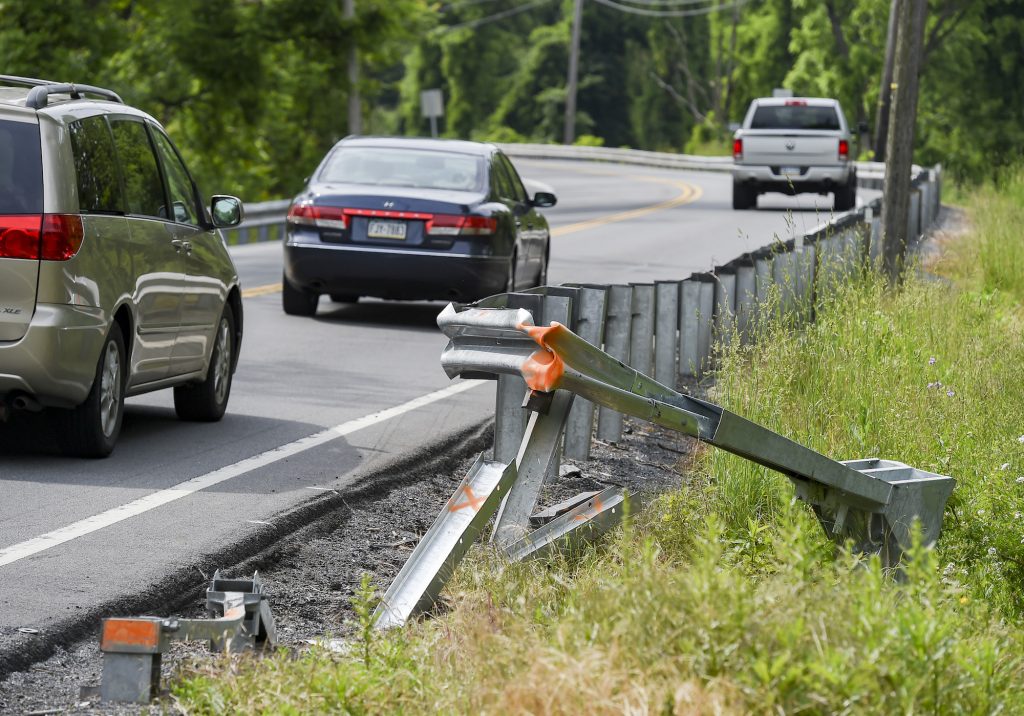Carfax How Timely Are Damage Updates?
Carfax has become a reliable source for ranking vehicles and helping consumers with machine shopping. But it besides continues a long history of reporting accident and harm history. Carfax vehicle history reports accept get the manufacture standard for ensuring everything is on the upwards-and-upwards with used cars. This spider web-based service helps suspension down the information barrier between a dealership and a buyer, putting everyone on the aforementioned negotiation level.
But does a Carfax report really include everything in a vehicle'south history? And how does Carfax know if a vehicle was in an accident?
Getting a vehicle's history through Carfax

Carfax grew in popularity in the tardily 2000s as the "Car Flim-flam" Television receiver campaign began: "Not Car Fox — Carfax!" Inexplicably, the Carfax Car Play tricks leaped into the mainstream and helped car shoppers realize they could access well-nigh of the aforementioned information that dealerships could.
Just Carfax actually existed long before that ad entrada. Founded in the mid-1980s, the web-based service worked to combat the odometer fraud that's largely been eradicated as manufacturers moved forward with technology.
And as internet access grew, Carfax positioned itself as the go-to source for a vehicle's honest history. The relationship between buyers and dealers has always been somewhat antagonistic. Having a neutral 3rd political party as a source of truth goes a long way toward reassuring consumers they're getting what they pay for.
How does Carfax find out about accidents?
According to Carfax, the service gets its data from various sources. They include motor vehicle agencies in the U.S. and Canada, auctions, repair facilities, insurance companies, trunk shops, recyclers, fleet and rental companies, fire departments, law enforcement agencies, import/export companies, and dealerships and manufacturers. Information technology's likely that if an accident was reported to anyone — or damage repaired — Carfax is aware of it, and y'all'll notice the data in vehicle history reports.
Non just does Carfax maintain a history of accidents on a vehicle, but it also tracks service and buying history. Two vehicles with similar brand/model years and mileage could command very dissimilar prices if ane is on its fifth owner and had iv accidents, even if the 2 cars appear similar. Reading through the data will help buyers avoid purchasing a lemon at a not-lemon price.
How the service helps post-blow car buyers
With today's standards of repair and detailing, an blow doesn't have to be the end of a machine's road life. Only if y'all're thinking of purchasing a post-accident vehicle, it's disquisitional to know exactly what kind of damage it sustained. Though cars that have been in an accident typically toll less (an average of $500 across the board), repairs aren't ever enough to get in new once again. Each vehicle requires the heir-apparent to brand an informed decision about what corners they're willing to cut for the toll, and that's where the Carfax study comes in handy.
There's no magic betoken that relays data from the scene of an accident to Carfax (yet). Nonetheless, thank you to close work with various sources, the company can usually get a relatively articulate idea of what has happened and update the vehicle history accordingly.
As new companies, like Carvana, enter the automobile sales game, Carfax works aslope them to streamline the information delivery process and ensure buyers know what they're getting. The age of dealerships property all the cards is over, and consumers can now access most of the same data thanks to Carfax's myriad sources.
RELATED: The Worst Things on a Carfax Report You Never Want to See
Source: https://www.motorbiscuit.com/carfax-know-vehicle-accident/
Posted by: ayalasition.blogspot.com


0 Response to "Carfax How Timely Are Damage Updates?"
Post a Comment